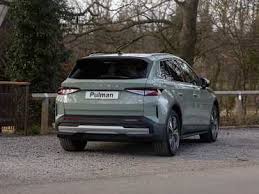Exploring the Latest Trends in Cars for 2023
Introduction
As the automotive industry continues to evolve, the year 2023 is set to witness significant advancements and trends that could reshape the way we view and use cars. With a growing emphasis on sustainability, technology, and safety, understanding these trends is crucial for consumers, manufacturers, and policymakers alike. This article examines the current landscape of the automotive sector and highlights key developments that are influencing the future of cars.
Electric Vehicles Take Center Stage
One of the most notable trends in the automotive industry is the rapid rise of electric vehicles (EVs). According to the Society of Motor Manufacturers and Traders (SMMT), the UK saw a record number of EV registrations, with 2022 recording a staggering 21% increase over the previous year. Major automakers, including Ford, Volkswagen, and Tesla, are investing heavily in expanding their electric offerings, as consumer demand shifts towards greener alternatives. The UK government has committed to ending the sale of new petrol and diesel vehicles by 2030, further propelling the transition to electric cars.
Innovative Technology Features
Modern cars are becoming increasingly equipped with advanced technology that enhances safety and user experience. The integration of artificial intelligence (AI), autonomous driving capabilities, and advanced connectivity features such as Vehicle-to-Everything (V2X) technology is on the rise. Features like adaptive cruise control, lane-keeping assistance, and real-time traffic updates are now standard in many new models. According to a recent study by AutoTrader, over 70% of car buyers reported that technological features significantly influenced their purchasing decisions.
The Focus on Sustainability
In addition to the shift towards EVs, there is a growing focus on sustainable practices within the automotive sector. Various manufacturers are pledging to adopt more eco-friendly materials in their production processes and to reduce carbon emissions throughout the lifecycle of their vehicles. Reports from the Carbon Trust indicate that companies that embrace sustainable practices can expect to enhance their brand image and attract more environmentally conscious consumers.
Conclusion
The automotive landscape in 2023 is characterised by the increasing prominence of electric vehicles, innovative technologies, and a strong commitment to sustainability. As consumers continue to seek greener and more technologically advanced options, the industry must adapt to these changes. For potential car buyers, understanding these trends will be essential for making informed decisions in the evolving market. It is clear that the drive towards a more sustainable and technologically sophisticated automotive future is robust, making cars not just vehicles, but a crucial part of the broader conversation on environmental and technological progress.









